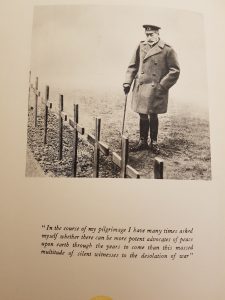Paper Abstract
This paper will examine how the First World War changed attitudes towards monarchy in Britain. It will compare how three dynasties were seen across the conflict, looking at the positive narrative built around the public image of the Belgian monarchy, which, throughout the war, had very close ties to its allied British counterpart, with the Belgian King’s children sent to the UK for part of the conflict for safety reasons. It will contrast this with the narrative of tyrannical kingship that was used in the UK to portray the Prussian monarchy’s Kaiser Wilhelm II and his son – with its echoes of the rhetoric of the English Civil War denigration of Charles I. The Belgian and Prussian cases will then be compared with the evolving wartime depiction of the British royal dynasty. The paper will explore how the revised depictions of continental monarchies, which the wartime situation created and necessitated, fostered an increasing emphasis on the ‘difference’ of the British monarchy from its European peers. How a narrative of ‘English’ monarchical ‘exceptionalism’ was created through contrasting the British King and Queen with other European monarchies, and how this ultimately protected the British monarchy in the revolutionary era of 1917-1923 will be explored, as well as the long-term legacy of this process in distancing the British monarchy from continental royals. Within the British press and other public sphere depictions, the British monarchy by 1918 was portrayed as democratic, egalitarian, thrifty, hard-working and as ruling by ‘consent’ not by birthright and therefore as not necessitating any revolutionary overthrow – unlike the continental monarchies that the war, and the revolutions that it unleashed, had destroyed. How the image of the continental ‘other’ was used to create this British nationalist narrative of democratic monarchism and its implications for how we understand the impact of the Great War upon British culture will ultimately be evaluated.
Background, Research Interests, and Publications
Heather Jones is Professor in Modern and Contemporary History at University College London. Prior to UCL, she was an Associate Professor in International History at the London School of Economics and Political Science. She is a graduate of Trinity College Dublin where she was a foundation scholar and a Government of Ireland Research Scholar, and St John’s College, Cambridge. She was a Max Weber Fellow at the European University Institute, Florence and is a member of the Board of Directors of the International Research Centre of the Historial de la Grande Guerre, Péronne. Her 2011 monograph Violence Against Prisoners of War in the First World War: Britain, France and Germany, 1914-1920 was published by Cambridge University Press. She has co-edited two books and published over 27 scholarly articles and chapters on the First World War. Her next monograph on the British monarchy at war, 1914-1918 is forthcoming with CUP, 2019.

King George V during his visit to the cemeteries of the Western Front in 1922
